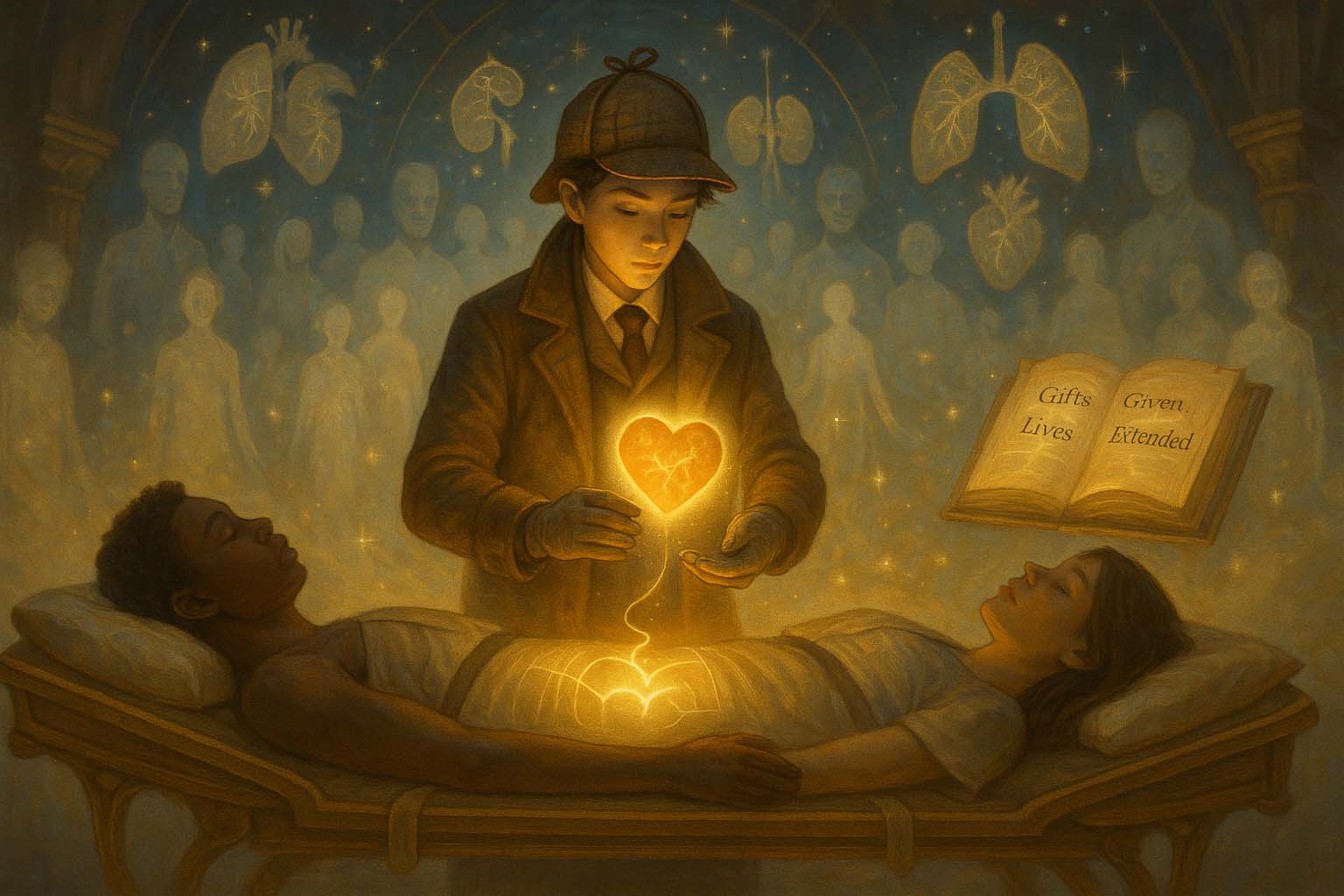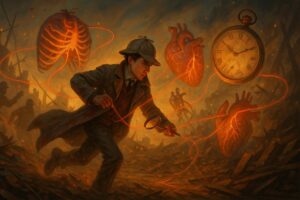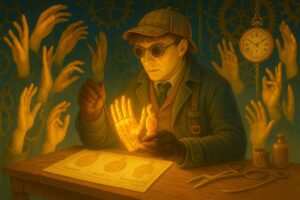
Transplant Surgery
- Posted by admin
- Categories Reconstructive, Transplant & Trauma Surgery
- Date May 24, 2025
- Comments 0 comment
The Life-Transfer Detective’s Domain – Cracking the Cases of Organ Failure, Donor Matching, and the Gift of Time
1. Introduction: The Scene of the Specialty
Step into the shoes of a Transplant Surgery sleuth.
This is the sacred edge of modern medicine—where death and life sit side by side, and one organ’s silence can become another’s salvation. Transplant surgeons are guardians of that transfer: orchestrating the retrieval, preservation, and implantation of hearts, livers, kidneys, lungs, and more. They deal in the tangible and the transcendent, where anatomy meets ethics, logistics meets emotion, and one life’s end becomes another’s beginning.
2. Key Mysteries They Solve (Common Transplants & Challenges)
These detectives specialise in solving cases involving:
- Kidney Transplantation – the most common solid organ transplant, restoring independence from dialysis.
- Liver Transplantation – managing cirrhosis, cancer, and fulminant failure with exquisite timing.
- Heart & Lung Transplants – life-or-death coordination with precision to the minute.
- Pancreas & Multi-Organ Transplants – complex solutions for intricate systemic failure.
Each case asks: Can this organ work again—somewhere else, for someone else, just in time?
3. Their Trusted Tools & Techniques
Every detective has their kit—and in Transplant Surgery, tools may include:
- Organ Perfusion & Preservation Systems – maintaining viability between donation and implantation.
- Anastomosis Techniques – connecting vessels, ducts, and organs with life-sustaining precision.
- Donor Retrieval Protocols – coordinating national and international donor networks.
- Immunological Matching & Rejection Management – knowing the body’s silent battles before they start.
This is surgery with science and soul—timed to the heartbeat, calibrated to the cell.
4. The Charms of This Field: Why It Captivates the Curious
- Literal Lifesaving: Without transplant, many patients have no other option.
- High Trust: Families give consent. Teams coordinate across cities. Outcomes depend on seamless collaboration.
- Tangible Hope: The transformation is often immediate—jaundice fades, breath returns, kidneys flow again.
- Ethical Depth: Every case is a philosophical encounter with mortality and meaning.
This is a specialty where the operating table is also an altar of second chances.
5. Challenges: The Toughest Cases They Face
- Timing Pressure – The window between organ harvest and implantation is relentlessly narrow.
- Rejection & Complications – Immunology is unpredictable; infections and failure loom.
- Donor Shortage – Need outpaces availability, demanding ethical triage.
- Emotional Weight – A life is saved—but always in the shadow of another’s loss.
But the seasoned transplant surgeon knows: to walk this edge is to honour both lives—donor and recipient—with grace and skill.
6. Famous Cases and Hallmark Clues
- The “Classic Presentation” – A young person with ESRD due to congenital kidney disease: ideal recipient for living donor transplant.
- The “Zebra” – Acute liver failure in a healthy adult: Wilson’s disease requiring urgent transplant.
- The “Aha Moment” – Detecting antibody-mediated rejection early from subtle post-op changes.
7. Your Training Trail: How to Join the Investigation
To become a Transplant Surgery detective:
- Begin with general surgery, then pursue advanced training in transplantation and immunology.
- Master vascular anastomoses, organ preservation, and donor-recipient matching.
- Train in coordination: transplant surgeons are leaders across time zones, ICUs, and ethics boards.
- Cultivate reverence—this isn’t just tissue you’re moving. It’s a life.
Whether you’re retrieving a liver from a brain-dead donor or implanting a heart into a fading body, you are delivering the purest form of possibility.
8. Final Words: The Signature of the Transplant Surgery Detective
Transplant detectives deal not just in organs—but in time, trust, and legacy.
They are the final hands in a relay of hope that began in tragedy.
They restore not just function, but birthdays, weddings, and ordinary mornings to those who feared they’d seen their last.
So if you’re drawn to the deepest purpose in surgery—the resurrection of life through another’s gift—then this is your sacred craft to carry.



